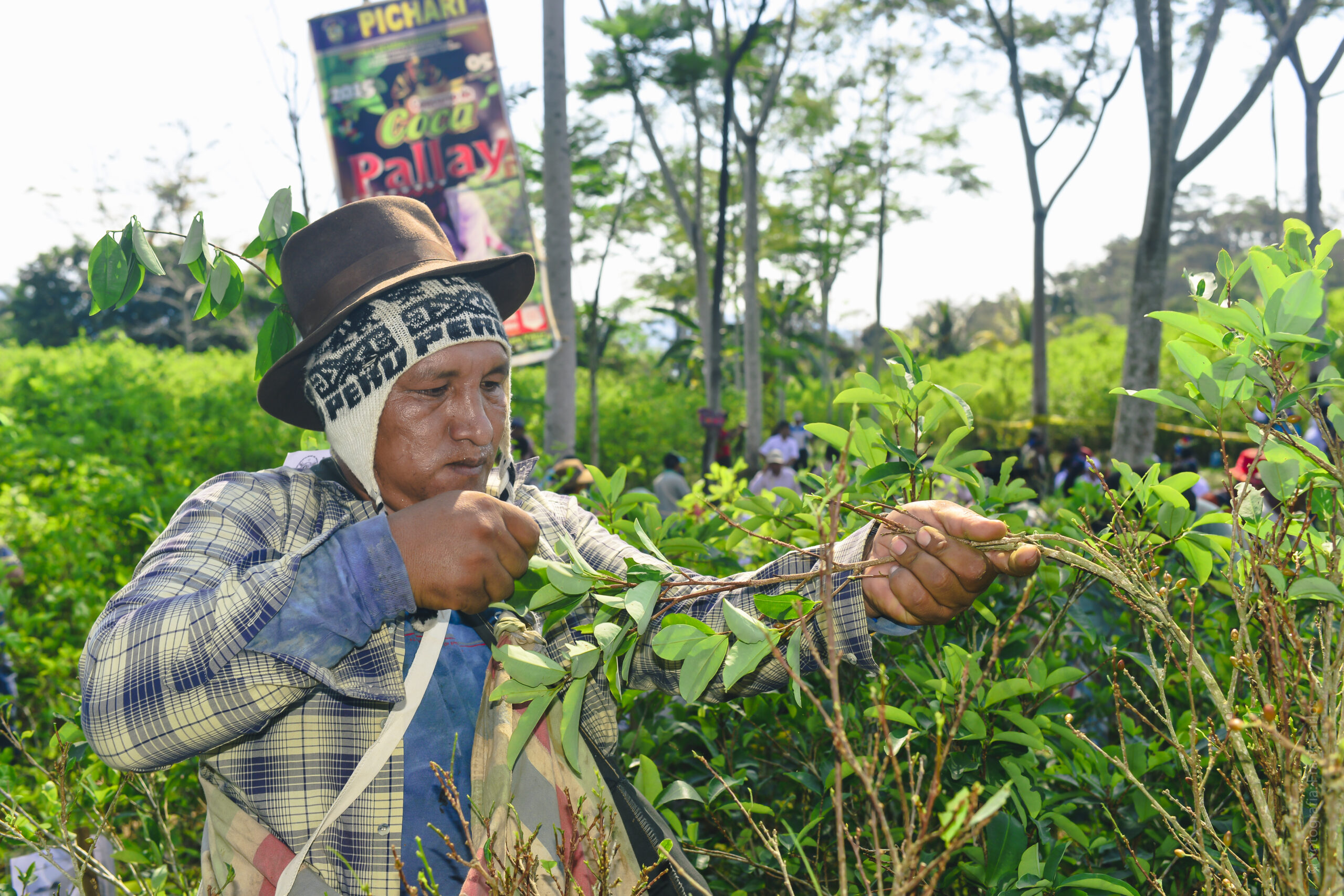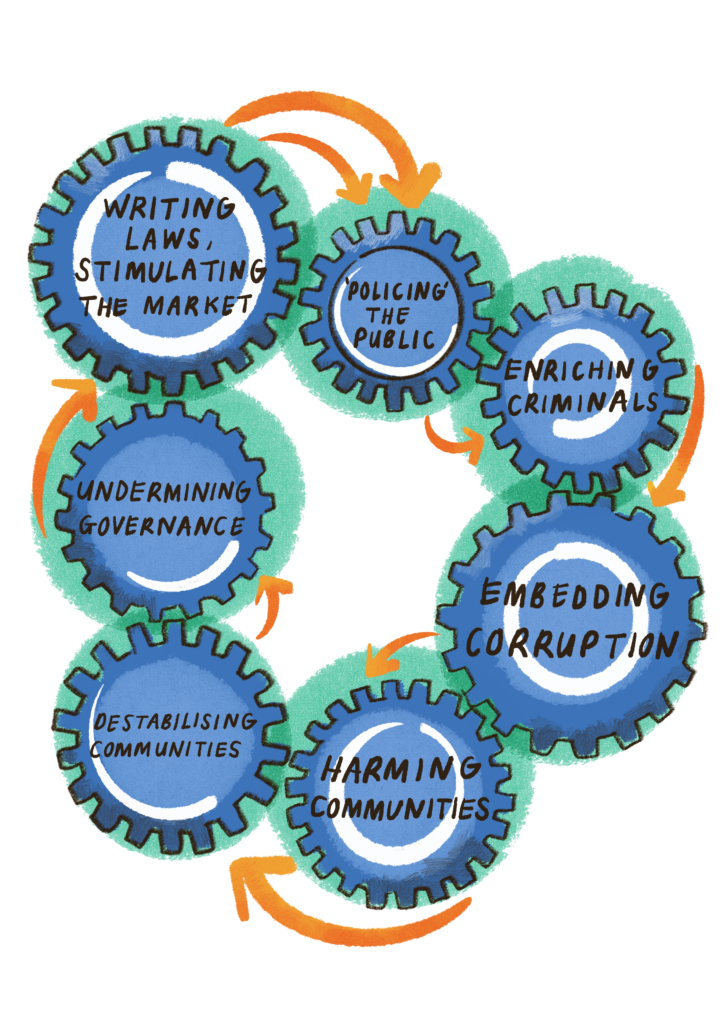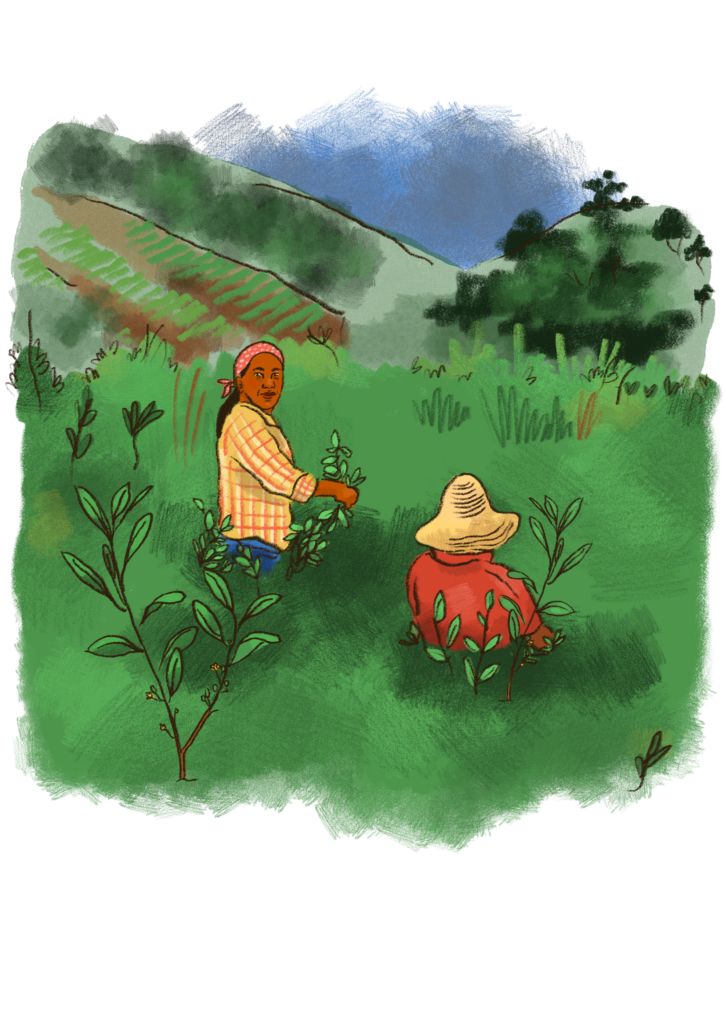The hidden costs of drug prohibition: planetary health
On by Ella Ronan
Prohibition’s repercussions extend beyond health injustices; these policies cause environmental destruction further contributing to injustices in climate and health.

© Frank Huaman Cartagena
Our Planetary Health Appeal highlights the connections between health, social justice and environmental issues. This article explores the health, social, and environmental harms 60 years of drug prohibition has caused. In almost all parts of the world, it is the most vulnerable communities that are disproportionately impacted by this punitive legislation, not to mention the violence and corruption of the drug trade itself.
While the links between drug policy and health remain underexplored. Clear and significant intersections between drug policy and health justice exist—how unfettered capitalism, inadequate access to healthcare, reduced public services, displacement and conflict harm vulnerable communities. Prohibition’s repercussions extend beyond health injustices; these same policies cause environmental destruction further contributing to injustices in climate and health.

© Javie Huxley
The so-called “war on drugs” has pushed production and trafficking into some of the world’s most ecologically fragile areas, such as the Amazon rainforest and the Upper Guinean Forest. Prohibitionist laws have empowered organised criminal groups, creating a shadow economy that destabilises state structures. These groups reinvest their profits into environmentally destructive activities, including illegal mining, logging, and agribusiness expansion. The world’s last forested frontiers—often biodiverse areas under conservation protection, in contested borderlands, or indigenous territories—are being destroyed. Biodiversity is in crisis, indigenous communities are losing their land to drug gangs, and ecosystems, which provide critical services like carbon storage, water purification, and climate regulation, are losing their resilience and capacity to recover, leaving us increasingly vulnerable to environmental shocks. Note: us, is everyone, however marginalised communities will ultimately feel the effects of an unhealthy planet first.
Global drug policy doesn’t just ignore these effects—it actively undermines efforts to combat them. Fear of criminalisation forces cultivation into hidden and protected areas, eroding conservation efforts. In Colombia, for instance, the fear of criminalisation has driven increased production in special management areas, around 50% of of coca cultivation now occurring in these areas, including indigenous territories and forest reserves. Meanwhile, responses to drug trafficking, such as militarised border patrols and forced eradication programmes—including aerial fumigation—leave a long-lasting trail of environmental devastation. These actions also generate significant fossil fuel emissions from patrolling borders, oceans, and airspace, compounding the environmental toll.

© Javie Huxley
But there is a solution. Evidence shows that transitioning from prohibition to legal regulation could reduce the power of organised crime, protect ecosystems, and promote equitable livelihoods. Legal regulation of the drug trade—designed with input from those most affected—could ensure that the new system works for social justice, not against it.
This isn’t just about the environmental impact; it’s about justice. Prohibition disproportionately harms marginalised people, small-scale farmers and indigenous communities, reinforcing inequities. Regulation offers an opportunity to address these systemic injustices while safeguarding biodiversity. By involving those most affected, we can craft policies that achieve both social justice and environmental resilience—a combination seldom within reach. Changes are underway, but they must uphold the principles of justice to truly succeed.
Delays in progressive regulation risk allowing corporate monopolies to dominate the market, sidelining small-scale sustainable producers and enabling land grabs in the Global South for drug mass production. This would undermine equitable food systems and sustainable agroforestry, eroding ecosystem resilience and compounding biodiversity loss.
We need urgent collaboration between environmental and drug policy movements. Only by addressing these interconnected challenges can we tackle the climate crisis and build a sustainable future for people and the planet.
Read our report the missing link to climate justice: drug policy to learn more.

